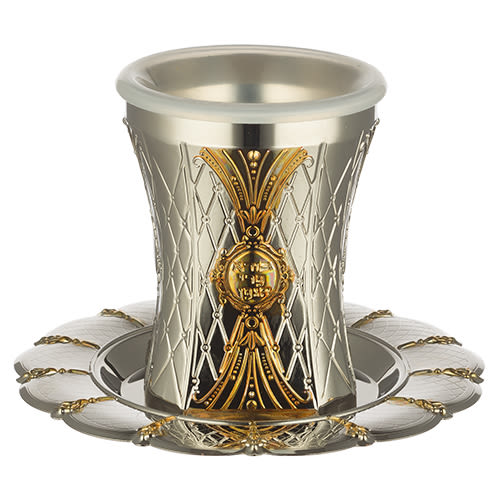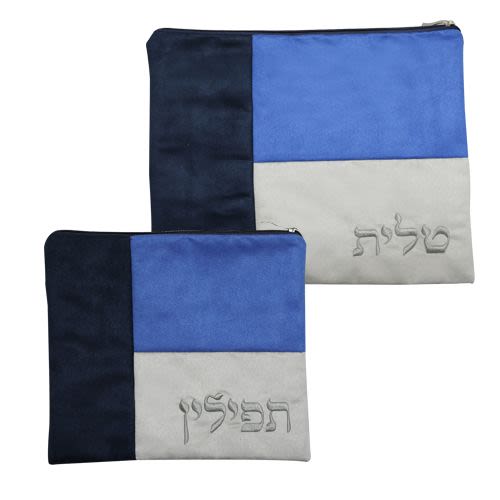
A Tale of Two Friends
Sarah's spiritual slide stemmed from her sophistication – she had to understand everything. That type of arrogance left no room for emuna...

I looked forward to reading Rabbi Arush’s book The Garden of Wisdom based on The Sophisticate & the Simpleton; I’ve read Rabbi Nachman’s story and it’s one of my favourites. I don’t know what Rabbi Arush writes about in this book but I have learned from Rabbi Nachman’s teachings his thoughts about the intellect. He stressed that serving Hashem with “simplicity” was the preferred path, which doesn’t mean not using our own intellect to the maximum to learn Torah but rather when we can’t understand either our own Torah learning or the meaning of our own personal tests sent from Hashem, we should revert to simple trust in Hashem regardless of whether we intellectually understand or not; we are by definition finite and therefore cannot understand Hashem’s ways. The intellect is very powerful but unless it’s checked by emuna and nullification to Hashem’s Will, it’s liable to run out of control and cause heretical ideas and emotional damage.
I once heard a Torah teacher say that he noticed an interesting phenomenon whilst teaching in a baal teshuva yeshiva; that the most outstandingly academic secular-educated students were quite often the ones who devised the most sophisticated and irrational  arguments for disproving the Torah!
arguments for disproving the Torah!
I don’t think I have ever experienced a more startling example of Rabbi Nachman’s teaching than that of a lovely friend, who I’ll refer to as Sarah. Sarah was born in a South American country and came to live here with her mother as an adult. A very kind, refined and exceptionally intelligent young woman, her background always struck me as rather exotic and creative. She always thought of herself as Jewish although her mother came from a lineage of intermarriage going back a few generations. As she became more interested in Jewish life, she inevitably had to confront the issue of her validity as a Jewess. No ketuba, no Jewish status. And so the searches carried on, the Beis Din valiantly trying to locate the missing document – but to no avail. She agreed with some reluctance to convert.
I was working at the time for a Jewish outreach organisation and it was suggested to me that maybe I would like to help my friend learn Hebrew. So our friendship became closer as she took the steps to cement her inclusion within the Jewish People.
There were however odd moments when I thought I perceived chinks in her armour of commitment. Like our weekly Hebrews sessions – she always arrived 10 minutes late, even though she lived across the road. She seemed to struggle with learning Hebrew, belaboring even though I could see she was well able to acquire the skills and she was also multi lingual and had learnt Hebrew transliteration very easily so could learn by rote. It was almost as if there was a resistance. I put it to one side, maybe she did just find it difficult but my doubts were niggling at me.
Then there were the times when little bursts of frustration pierced the outer calm, happy-with-life exterior, the irritation that the Beis Din were putting her through this ordeal when she was definitely Jewish, and that she couldn’t wait to get “this business” over and done with. I put those doubts to one side as well. I could understand where she was coming from, her feelings seems reasonable enough.
And then she went through a few months where she just “dropped out” of our classes, on the pretext that she wasn’t feeling well. Eventually I asked her what the problem was – was she having second thoughts, that it was ok. She didn’t have to convert. No, she said, I do want to convert. And then she was back on track. A colleague said to me why is she making such a meal of this, she could be converted in less than a year? I didn’t understand either.
Sarah persevered, everything in her home became completely kosher, she had a good understanding of halacha, she prayed with fervour [at least outwardly], she went to every shiur possible, enjoying everything, she travelled abroad with tovelled pots and pans. She was more frum than me. We both gravitated towards the more Chassidic/philosophical teachings and we both discovered Rabbi Nachman.
She converted with flying colours. Life was good…for a while.
Maybe it was a reaction after the stress of the past year or so, I thought. Maybe it was the broken engagement, maybe it was a bit too much interference from well meaning people about why she was still living with her “non Jewish” mother, or maybe it was seeing the reality of what being in exile does to the Jewish neshama, that we’re not perfect. She suffered allergies. She put it down to the trauma of the past months. I felt for her.
After that, gradually everything unravelled. I wasn’t really experienced enough to understand what was happening, and in retrospect although I had a working knowledge of what emuna was and could apply it to my own life up to a point, I didn’t have the deeper understanding and experience that I hope I have acquired since that time. We certainly didn’t have access to the Garden of Emuna.
It started with: “I don’t speak to Him [ie Hashem] any more”. I didn’t know how to respond, must be a reaction, she’s just a bit upset. Actually, it turned out that she really did mean it.
Then the clothes changed quite gradually, the trousers went back on. Ok, she still keeps Shabbat, and kosher. She’s trying to find her place. Maybe you need a different community, I said.
Then Shabbat went.
“Don’t worry, Yael, I’ll always keep kosher”. Hmm.
Looking back, it was interesting how “organised” her escape from the “confinements” of Torah life were. Interesting how her dismantlement started with breaking off contact with Hashem. Of course, that made sense; she had to do that first because in her mind how could she dispose of the other mitzvot if she was still speaking to Hashem. How interesting as well that she thought if she wasn’t speaking to Hashem, He somehow wouldn’t notice what was going on!
She made the break completely and says she’s happy with her life, back to her old life, to freedom, to the non-Jewish world which she was so drawn to. She told me it’s always been a struggle between Torah and her non Jewish life, her travelling, the beaches, culture, her attachment to all things Italian, and you know, Yael, I really think I’m going to live in Italy one day, etc. You know me, Yael, if I want to do something, I do it, if I don’t want to, I don’t. Well, Sarah, was this the real you all the time? How apropos, because of course that’s what Rabbi Nachman said when asked about what the definition of free will is. It’s just that we can choose the wrong thing. I pointed out that all these things she defines as her goals now are very transient and superficial. She didn’t seem to understand.
Maybe I’ll come back to Torah one day, she said. Just keeping your options open, then?
A few years later, we’re still in touch. It’s hard for me. I don’t really know what to talk about. So we see each occasionally. Every so often she tells me she misses the Torah. One day I blurted out, what do you mean by that? Is it just intellectual what you miss? She looked at me incredulously. Yes, of course, it’s intellectual. As if, what else could it be?
So there was the answer. It was intellectual. She really did not understand the concept of emuna. She couldn’t internalise that Hashem arranged for her not to be able to locate the ketuba. She couldn’t internalise that her tests were designed to bring her closer to Hashem. She wanted things her way, or no way because in her world she was more important that Hashem. Sarah, I hope one day, with Hashem’s help, you’ll learn humility, to be “simple” with Hashem.











4/01/2012
‘who’s in and who’s out’? Reading the last line of the article it is apparent that we ALL need to learn much more humility and to be more 'simple' with HaShem. Let's not be so sure as to 'who's in and who's out' when it comes to 'internalizing emuna.' Perhaps this woman, who is on her own tailor-made G-d given path equally deserving of HaShem's compassion and mercy was sent into the author's life so that te author could learn to become more simple with HaShem. We do not know who's righteous and who is less righteous.
4/01/2012
Reading the last line of the article it is apparent that we ALL need to learn much more humility and to be more 'simple' with HaShem. Let's not be so sure as to 'who's in and who's out' when it comes to 'internalizing emuna.' Perhaps this woman, who is on her own tailor-made G-d given path equally deserving of HaShem's compassion and mercy was sent into the author's life so that te author could learn to become more simple with HaShem. We do not know who's righteous and who is less righteous.